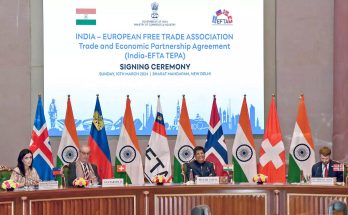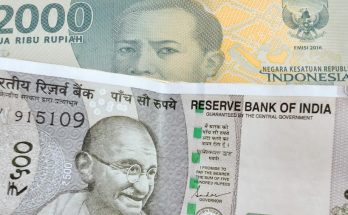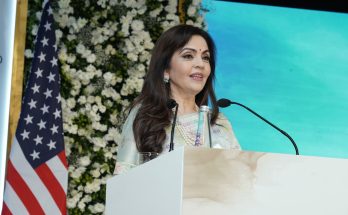Now that a new Government has settled down to work in Colombo, an official South African team is back in the country, trying to take forward their post-war truth and reconciliation efforts from where they had left  under the predecessor regime of President Mahinda Rajapaksa. All told, the present double-barrel gun comprising President Maithripala Sirisena and Prime Minister Ranil Wickremesinghe should be the welcome change that any peace facilitator in Sri Lanka could do with yet the South Africans’ job is more difficult than in the past.
under the predecessor regime of President Mahinda Rajapaksa. All told, the present double-barrel gun comprising President Maithripala Sirisena and Prime Minister Ranil Wickremesinghe should be the welcome change that any peace facilitator in Sri Lanka could do with yet the South Africans’ job is more difficult than in the past.
Technically at the very least, the Sirisena-Wickremesinghe duo represents a broad national consensus that was not possible or even attempted in any serious manner by the Rajapaksa leadership. There are issues that President Sirisena would still have to sort out within his Sri Lanka Freedom Party (SLFP), in whose internal affairs, his predecessor still seems to have a say – and sway. Untested as yet this say-and-sway remains unproved. For the same reason it also remains disproved.
Early reports had indicated that the South African team would be led by Cyril Ramaphosa, a Vice-President in his country. Said to be a confidant of President Jacob Zuma, Ramaphosa had headed the South African peace delegation to Sri Lanka the last time round. This time, instead, Deputy Minister of International Relations and Cooperation Ms. Nomaindia Mfeketo is heading the South African delegation. Apart from holding talks with various stake-holders to the larger ethnic issue, the team would also brief the new Government in Colombo on their nation’s experience in tackling post-apartheid socio-political reconciliation.
Therein lies the first hitch in the Sri Lankan context, but none wants to acknowledge it. Post-apartheid South Africa witnessed the once suppressed classes gaining political power, making readjustments a naked necessity, and hence possible. That’s not the case with Sri Lanka. Even five years after the conclusion of the ethnic war(s), the Tamil minority has not stopped complaining about majoritarianism in every initiative and decision of what will ever be a Sinhala-dominated government apparatus.
It’s not about the genuineness or otherwise of the Tamil claim, or of their perceived charges against the Sinhala-Buddhist majority. They have not gotten over those perception(s) and do not want to get over it either, it would seem. Truth be told, they continue to wallow in self-pity and continue to propagate as the truth, whole truth and nothing but the truth, their own past versions of ethnic discrimination, war and violence.
Every suggestion that their leadership(s) of the time(s), moderate or militant, too might have gone wrong and done wrong, too is readily acknowledged with a straight yes (Naangalum ethanayo pizhai-vittom) but possible correctives never follow. Instead, it is a repeat of old charges against the Sinhala-Buddhist Sri Lankan Establishment, or an inclusion of new charges. In doing so, they often deliberately confuse the Sinhala-Buddhist political leadership(s) with the larger Sinhala population, accounting for a very high 75 per cent of the nation’s head-count.
The even greater contradiction between the South African experiment and the Sri Lankan experience relates to the mode of protests by the affected community. Starting off as a militant, Nelson Mandela soon ended up taking to Gandhian ways of peaceful, soul-searching protests. Decades earlier, Gandhiji had proved to South Africans and his native Indians that an alien establishment did not have an answer to his ahimsa and satyagraha. Mandela proved that the rulers had not found a weapon even in his time.
It’s again not the case with the Sri Lankan ethnic issue. The Tamils started off on a Gandhian protests after Independence, continue to call the late S J V Chelvanayagam as Tamil Gandhi, but when it all ended, they were being led by one of the most dreadful terror outfit that the world has ever seen. The Tamils continue to argue that their moderate leaderships had to make way for militants, especially the LTTE, only because the Sri Lankan State and Establishment ignored, insulted and targeted the former.
There is substantial truth in it, yes. But that would also make the South African understanding of the complex Sri Lankan situation of the past decades much more difficult than what they might be prepared for. For instance, their Truth Commission did not have to find a cure for accountability issues involving non-State actors. It acquired massive proportions in Sri Lanka’s case and are also well-documented, to be able to ignore them.
It’s also the problem with the UNHRC or any other kind of independent probe on Sri Lankan accountability issues. It’s not just about majoritarian perceptions of the truth as told by the international community and its independent probes. It is also about the impossibility of the situation that because the perpetrator of it all is dead and gone, no one could really be taken to task from among the non-State actors. There may still be a KP, Karuna or Pillaiyan here, or a Nediyavan there but that’s all to it.
The general perception, both among the Tamils and the Sinhalese, is that the UNHRC probe is all about fixing accountability for alleged war crimes on individuals, going right up to the political masters and armed forces commanders, going up to the top-most and to the utmost on the State front. There is no perception about the non-State LTTE command and control structures.
There is no expectation that the moderate Tamil leadership that lent one sided proxy voice to the LTTE too would be held accountable. It’s this that makes the UNHRC probe untenable almost from the start not only among the non-Tamils in the country, but also among some of those nations that had openly voted for the US resolution at Geneva through the past three years.
It’s likely that some of these nations may not want to vote with the US on another resolution this year particularly when there is a new, purportedly West-friendly, democracy-loving leadership in the country. Independent of the US, the UN and the UNHRC leaderships seeing reason and justification in the new Sri Lankan leadership’s demand for more time to work on domestic accountability mechanisms.
As the new Government has clarified, they would like their own probe to work in sync with the UNHRC probe report, which will now remain unpublished for another six months. The exception could be an unexplained leakage of the report, like the Darussman report before it. It may also thus serve as a notice to the new Government that they should mean business when they demanded and have gotten more time for the purpose.
Genocide resolution and more
In the normal course, the South African team would have got a better beginning under the changed circumstances. Earlier, they had said that they would not want to get involved unless all stake-holders at least wanted to hear them. They did not seem wanting to be a peace-provider, or broker, or even facilitator like India did in the Eighties and Norway, a decade later.
The post-poll genocide resolution, hurriedly passed by the Tamil-majority Northern Provincial Council (NPC) might have already sapped the South Africans of whatever enthusiasm that a regime-change in Sri Lanka might have injected in the previous weeks. The resolution militates against the spirit of accommodation that the Tamil National Alliance (TNA) had demonstrated for the post-poll ahead of the presidential polls. It is also aimed at trying to negate the international community’s post-poll accommodation of and for the new Government in Colombo.
On the one side, the South Africans now have a more friendly Sri Lankan State dispensation, which is willing to hear them out patiently at the very least. On the other, they now have a demonstrably more hard-line Tamil group, which also suffers from greater legitimacy on the domestic front, owing to the elected nature of the NPC.
Even at the best of times, post-war in particular, the TNA used to be a divided house. In the current post-poll context, the moderate Tamil leadership seems to have lost out so very completely to the hard-liners, with the result even those perceived as moderates now wear different clothing.
Worse still, the respective leaderships of the Centre and the democratically-elected NPC administration, PM Ranil and Chief Minister C V Wigneswaran, respectively have started directly attacking each other from public platforms. To the South Africans, it would mean that nothing much can be achieved on the Sri Lankan front at least before the conclusion of the parliamentary polls, most likely in June.
Truth be told, it would not be before September, when alone the UNHRC Report is to be publicised. Even then, there is nothing to suggest that either the NPC or their hard-liner counterparts in the Sri Lankan Tamil Diaspora would accept it in toto. It’s another matter, how the UNHRC would react to the report, or to the possible request from the Sri Lankan Government for allowing its domestic mechanism(s) to follow up on those findings.
The Tamil hard-liners are already clamouring for taking individual cases to the International Criminal Court (ICC). As of now, criminal trial(s) of any kind, nearer home or at the ICC, would have to be near-exclusively against the State and the State actors. The LTTE and its political backers, including the leadership(s) of the TNA and the post-war TNGTE, operating out of the US of all places,, would almost go scot free.
This is not something that any Government in Sri Lanka could sell to their people(s). Nor would the US be able to sell such a proposition to even the best of allies, whose votes it would still need to pass muster at the UNHRC. As always, the West would then be seen as not thinking about The Day After, even in what essentially are political moves, as different from military expeditions of the Vietnam, Iraq and Afghanistan kinds.
Clash of civilisations
The South African Truth Commission succeeded in South Africa, also because of the cultural and civilisation-based approach of their peoples and their leadership(s). Even the post-Wars western concept of truth and reconciliation of almost every kind is based on the civilisational concept of crime-and-punishment. Against this, the traditional South Asian approach to crime of this nature is forget and forgive. In a way, it’s a clash of civilisation, where the twine still cannot meet.
Before South Africa, neighbourhood India and distant Norway played peace-facilitator in Sri Lanka. Looking back, the Indian efforts failed also because the culturally unacceptable practices it adopted. Taking off from the template western models of the post-World War kind, India in the Eighties seemed to have concluded that for a fair deal, there should be a level-playing field for stake-holders to a politico-military conflict of the kind.
India at least had the experience of internal insurgencies of the kind it had successfully addressed in the previous decades – and even later. On all those occasions, the Indian State negotiated from a position of strength, and still yielded in good measure, to address the legitimate concerns and aspirations of the affected lot, whether in Mizoram or Nagaland, Punjab or Jammu and Kashmir.
What remains in Jammu and Kashmir at present is mostly cross-border terror of the ISI-induced/funded kind. It is thus that the BJP, ruling the Centre, and the People’s Democratic Party (PDP), a regional outfit once championing the Kashmiri cause, could form an alliance-government in the troubled border State. With this, the pro-Hindu BJP would have done business with the two regional majors in the State, after the Vajpayee Government had the Jammu and Kashmir National Conference on its side as an ally and ministerial colleague.
Whether the coalition succeeds or fails in political terms, the chances are that the last of the strong regional outfit in the State, would have been mainstreamed at the end of it all. There is thus this lesson for Sri Lanka, particularly the Tamils, that for them to obtain concessions or rights (which is their preferred term), they would still need to work with the nation’s mainstream polity, whatever be its colour or creed. Of course, they need not have to go to India, but can learn the same lessons from the Muslim and Upcountry Tamil polity in the country.
After India, Norway came to Sri Lanka as peace facilitator. It neither had India’s experience, nor the culture-based civilisation approach of the South Asian kind. Instead, all it had was the text-book template models developed by and for the western world in some of their Scandinavian academic institutions on peace and conflict studies. They could together market the concept(s) to Third World academics and also manage the political leaderships. They could not take it down to the last man on the street. They were thus bound to fail and failed.
Compared to India and Norway, South Africa may have entered Sri Lanka first and re-entered now to a relatively positive start, or so it seemed. They may not have the kind of peace-making experience that contemporary Sri Lanka demands. Nor do they have the kind of culture-based civilisational understanding of the approaches that may have been required on this special assignment. Yet, their timing now proves to be wrong, and their proposals thus may not either be heard, or acted upon. The end result thus may remain the same, as much or as less as what the other two achieved, or did not achieve.
(courtesy: ORF)
Author Profile
Latest entries
 DiplomacyDecember 28, 2015Maldives 2016: At multiple cross-roads
DiplomacyDecember 28, 2015Maldives 2016: At multiple cross-roads DiplomacyDecember 23, 2015Maldives: Adopting the China model?
DiplomacyDecember 23, 2015Maldives: Adopting the China model? DiplomacyDecember 7, 2015Chennai floods: Has it anything to do with climate change?
DiplomacyDecember 7, 2015Chennai floods: Has it anything to do with climate change? DiplomacyNovember 13, 2015Maldives: End of emergency, what next?
DiplomacyNovember 13, 2015Maldives: End of emergency, what next?







